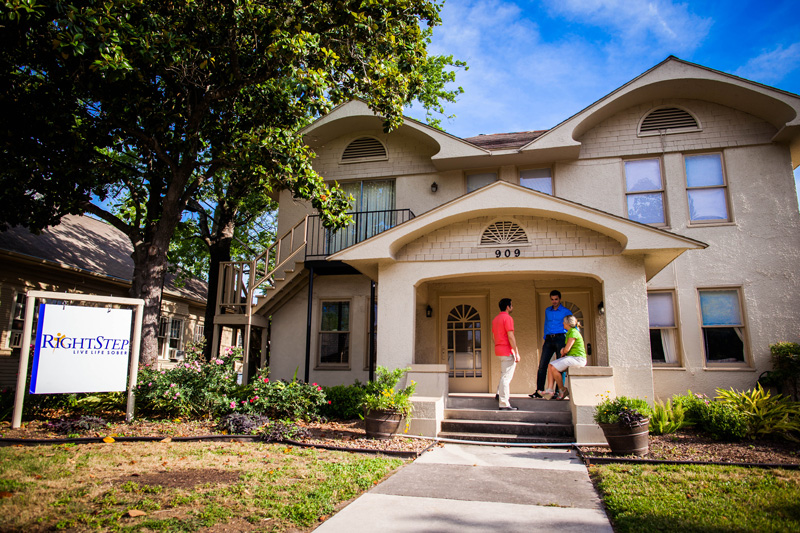Overcoming Barriers Faced by Women in Rehab; Why Aren’t Men Faced with the Same Challenges?
Between 1995 and 2005, the proportion of men to women attending addiction treatment maintained steady at 2:1. Many people attribute this to a decreased likelihood among women to seek treatment. It also led to a greater research focus on the issues of men in treatment, something that is being rectified as time moves forward but has nonetheless left a legacy of treatment that does not adequately address the specific needs of women.
There is a form of treatment that specializes in female issues and needs: women’s addiction treatment. These gender-specific treatment providers understand the medical, psychological, and social requirements and issues that are individual to women in rehab. This allows them to accurately make diagnoses and prepare treatment plans that are more deep-rooted than what might be found in a treatment center that serves all genders.
To learn more about how women’s rehab can help you to overcome barriers to treatment, call 888-821-1257 Who Answers?. Specialists will answer every one of your questions and provide you with answers that respect where you are coming from. Get access to the treatment that you need and feel respected, too.
What Are the Barriers Facing Women?
According to the National Institute on Alcohol Abuse and Alcoholism, women face the following barriers to treatment to a much larger extant than men:

The need for childcare can keep women from seeking rehab.
- Economic instability
- Co-occurring mental disorders
- Lack of education
- Lack of transportation
- Familial responsibilities, including caring for children
- Housing instability
- Shame or embarrassment about needing treatment
- Lack of information regarding treatment options
To this list, the National Institute on Drug Abuse adds:
- Poor self-esteem
- Physical and sexual abuse
- Social isolation
Why Don’t Men Face the Same Challenges?
A lot of the challenges that women face have to do with the social standing of women within their cultural context. A woman who is a respected executive for a company and has established herself as a leader in the home isn’t as likely to have economic barriers or childcare ones compared to a woman who is a stay-at-home mom whose native culture gives her a lower standing than a man.
Latinas, for example, are more likely than white or African American women to report familial influences and exhibit low self-efficacy and self-esteem. Traditionally, Latino men are the great providers of their family. Women tend to be self-sacrificing, responsible, patient, and in charge of the home. Though, of course, this is a pattern and not the rule.
Women aren’t consistently subjugated in modern society, but systemic sexism still exists. A good example is the entrenched pay inequality in modern society. In 2015, women faced a 20 percent wage gap with female full-time workers earning 80 cents to a man in the same position’s dollar. In nearly every single occupation about which research has been done, women earn less than men. A situation like this contributes to an economic barrier to treatment. Women may not have the same amount of money as men seeking treatment.
Psychologically, women are far more likely than men to have certain mental disorders in addition to an addiction; this is called a co-occurring condition. A study determined 30 to 59 percent of women have co-occurring conditions. The reason men don’t face this barrier is both biological and situational.
Women for example are simply more likely to have a substance use disorder and a mood or anxiety disorder. This is likely related to the makeup of a woman. But, women are also more likely to be sexually or physically abuse (men are two to three times less likely) and this is why so many female substance abusers also have post-traumatic stress disorder.
How Does This Impact Women’s Treatment for Addiction?
These barriers need to be addressed in treatment. The National Institute on Drug Abuse argues that rehab for women must:
- Arrange or provide child care
- Arrange or provide transportation to treatment
- Offer nonconfrontational counseling and therapy
- Offer job skills training and education developed for women
In addition to these needs, women need proper diagnosis and treatment for co-occurring conditions.
To learn more about how women’s rehab is arranged to help patients overcome obstacles, call 888-821-1257 Who Answers?. Imagine having specialized care that treated you as a woman, with specific issues and needs.
Women’s Residential Rehab: Is Inpatient Rehab Really Necessary?
Journey Healing Center
Serenity and tranquility are elemental at this ultra-comfortable, luxury treatment center nestled at the base of Utah’s Wasatch Mountain Range in Sandy, Utah.
Details ›Right Step - Houston Central
Housed in a collection of historic homes surrounding a common courtyard, Right Step Houston nestles comfortably into the tree-lined streets of the city’s hip Montrose neighborhood.
Details ›










